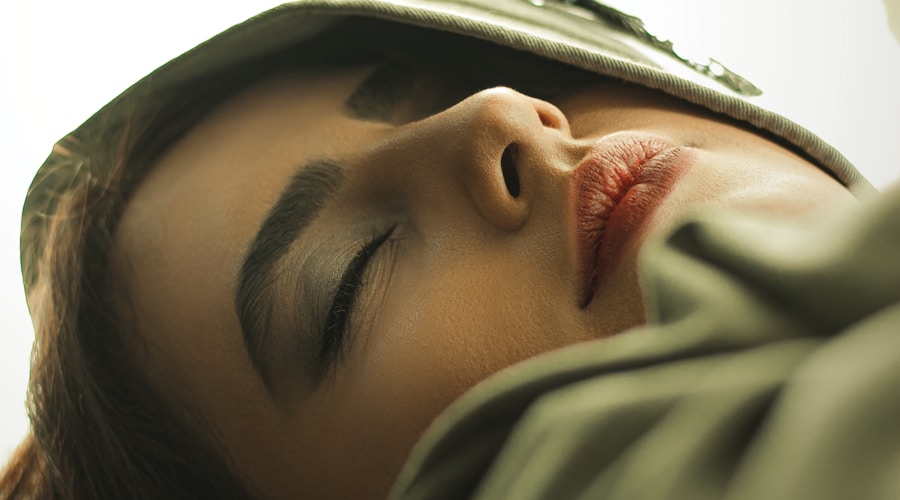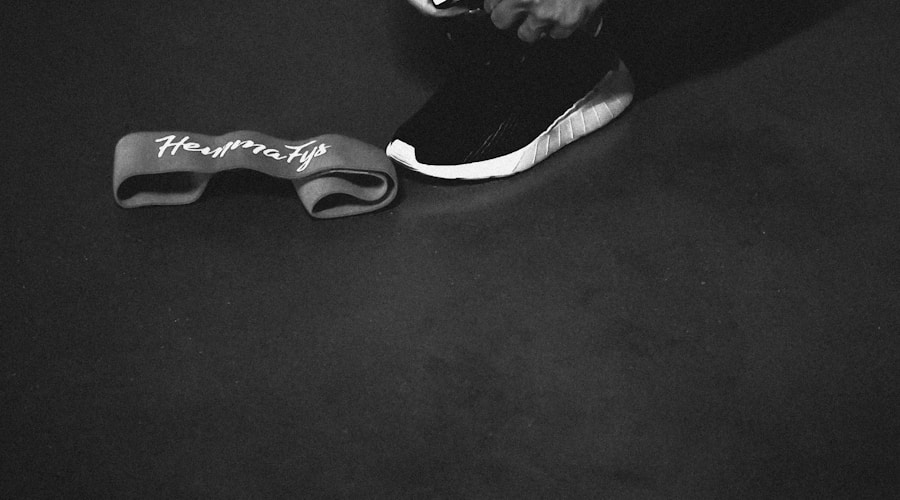Welcome to our comprehensive study on the link between creativity and sleep. You're about to embark on a fascinating journey into the inner workings of your mind and the impact of sleep on your creative abilities.
In this article, we will explore the relationship between creativity and sleep, shedding light on how these two seemingly unrelated facets of life are deeply intertwined.
Are you ready to uncover the mysteries behind your most ingenious ideas and how a good night's sleep plays a crucial role in nurturing your creative potential? Let's dive in and discover the fascinating connection between the two.
Introduction: Understanding Creativity and Sleep
Have you ever noticed how some of your best ideas seem to come to you when you're just about to fall asleep or right after waking up? This is not just a coincidence; there is a strong link between creativity and sleep that has been studied extensively.
According to neuroscientist Penelope Lewis, "Sleep and creativity are among the most awe-inspiring threads in the fabric of human existence." Understanding this link can help you harness the power of your mind to boost your creative thinking and problem-solving skills.
Creativity, defined as the ability to generate new ideas or create innovative solutions, is a crucial skill in today's fast-paced world. However, many of us struggle to tap into our creative potential. This is where the role of sleep becomes increasingly important.
The relationship between sleep and creativity has intrigued scientists, artists, and thinkers for centuries. Renowned inventor Thomas Edison once said, "The best thinking has been done in solitude. The worst has been done in turmoil." This highlights the importance of a well-rested mind for creative breakthroughs.
Over the years, numerous studies have delved into the mechanisms behind how sleep impacts creative thinking. From analyzing brain waves to conducting experiments on sleep-deprived individuals, researchers have made significant strides in understanding this complex relationship.
By gaining insights into the science behind creativity and sleep, you can unlock your full potential and enhance your ability to think outside the box. In the following sections, we will explore key studies that demonstrate the role of sleep in enhancing creativity and provide practical tips for improving your sleep to boost your creative abilities.
The Science of Sleep and Creative Thinking
When it comes to the connection between sleep and creative thinking, the science behind it is truly fascinating. Research has shown that sleep plays a crucial role in enhancing creativity. In fact, neuroscientist Dr. Penelope Lewis states, "Sleep is a really creative state, and you don't get there unless you have had lots of practice."
During the various stages of sleep, the brain is actively consolidating and reorganizing information. This process is essential for creative thinking. In the REM (rapid eye movement) stage of sleep, the brain is busy making connections between unrelated ideas, which can lead to innovative and creative insights. Dr. Sara Mednick, a psychologist at the University of California, Riverside, explains, "During REM sleep, the parts of the brain that are important for creative thinking are more active."
Moreover, during deep sleep, the brain also engages in memory consolidation, which is crucial for creative problem-solving. As you sleep, your brain is working behind the scenes, organizing and connecting the dots, which can lead to those "aha!" moments when you wake up.
According to a study by the University of Lübeck in Germany, published in the journal "Cerebral Cortex," researchers found that sleep can enhance creative problem-solving. Dr. Ramiro Almeida, the lead researcher, stated, "Sleep has been found to help people retrieve information, embed information, and find novel solutions to problems." This research underlines the importance of sleep in fostering creativity.
So, the next time you find yourself struggling with a creative block, consider giving your brain the rest it needs. A good night's sleep might just be the key to unlocking your creative potential.

History and Evolution of Research on Sleep and Creativity
Over the years, the link between sleep and creativity has been the subject of extensive research and study. The history of this research can be traced back to the early 20th century, with notable scientists and psychologists delving into the relationship between sleep and innovative thinking.
The early research on sleep and creativity paved the way for more comprehensive studies in later years. As Dr. James B. Maas, a renowned sleep expert, explains, "The fascination with the relationship between sleep and creativity has been a long-standing one, with early studies providing the foundation for our current understanding of this intriguing connection."
One of the key milestones in the evolution of sleep and creativity research was the groundbreaking work of Dr. Rosalind Cartwright, an eminent psychologist known for her pioneering studies on the role of dreams in the creative process. Dr. Cartwright's work shed light on the significance of REM sleep in consolidating emotional and creative experiences, leading to a paradigm shift in the way sleep is perceived in relation to creative thinking.
The evolution of research on sleep and creativity has also seen the integration of interdisciplinary approaches, as Dr. Mark Beeman, a cognitive neuroscientist, highlights: "The convergence of findings from psychology, neurology, and sleep medicine has allowed us to gain a more holistic understanding of how different aspects of sleep influence our creative abilities."
As the field continues to evolve, researchers are now exploring the intersection of sleep, memory consolidation, and creative problem-solving. Dr. Sara C. Mednick, an expert in sleep and cognition, notes, "The emerging research is uncovering the intricate mechanisms through which sleep enhances our ability to make novel connections and generate innovative ideas."
The history and evolution of research on sleep and creativity have laid the groundwork for a more nuanced and comprehensive understanding of the complex interplay between these two fundamental aspects of human experience. As we look to the future, it is clear that the ongoing exploration of this intersection will continue to yield valuable insights that can inform our efforts to harness the full potential of both sleep and creativity.
Key Studies: The Role of Sleep in Enhancing Creativity
Research has shown that sleep plays a pivotal role in enhancing creativity. In a study published in the journal of the American Psychological Association, researchers found that individuals who got a full night's sleep were better able to integrate unassociated information, leading to a higher level of creativity in problem-solving.
Another key study conducted at Harvard Medical School revealed that REM sleep, the stage of sleep where dreams occur, is particularly crucial for creative thinking. Dr. Robert Stickgold, a leading sleep researcher at Harvard, stated that "REM sleep seems to help achieve connections between ideas that arent obvious during wakefulness". This emphasizes the importance of not just sleep, but different sleep stages, in the creative process.
These findings are supported by research from the University of California, San Diego, where scientists discovered that the brain continues to work on solving problems while you sleep. Dr. Gabrielle Carlson, a prominent psychiatrist, notes that "During sleep, the brain is unconstrained, and typically these constraints we have during waking hours are gone. That's when you can really think deeply and do some difficult problem solving".
It's evident from these studies that sleep is not just a period of rest, but a crucial time for your brain to process and integrate information, leading to enhanced creativity and problem-solving abilities.

Different Sleep Stages and Their Impact on Creativity
When it comes to the link between sleep and creativity, it's essential to understand how different sleep stages can impact your creativity. As you sleep, your brain goes through various stages, including non-rapid eye movement (NREM) sleep and rapid eye movement (REM) sleep. Each of these stages plays a crucial role in enhancing your creative thinking abilities.
During NREM sleep, your brain consolidates memories, processes emotions, and restores energy. This stage sets the foundation for creativity by organizing and connecting information gathered throughout the day. According to sleep expert Dr. William Dement, "NREM sleep is essential for laying the groundwork for creative insights and problem-solving. It's during this stage that your brain sifts through experiences and knowledge, establishing the building blocks for creative thinking."
On the other hand, REM sleep is when your brain becomes more active, and you experience vivid dreams. This stage is linked to divergent thinking, which is crucial for generating new ideas and making connections between unrelated concepts. Dr. Sara C. Mednick, a sleep researcher and author, explains, "REM sleep allows your mind to wander freely, leading to innovative and original thoughts. It's the time when your brain synthesizes information in unexpected ways, fostering creativity."
It's clear that both NREM and REM sleep are essential for nurturing creativity. Your brain needs the organization and consolidation provided by NREM sleep, as well as the free-flowing, imaginative state of REM sleep, to optimize your creative potential. Therefore, getting adequate and quality sleep, allowing for complete cycles of both NREM and REM sleep, is vital for boosting your creativity.
By understanding the impact of different sleep stages on creativity, you can make informed decisions about improving your sleep habits to enhance your creative abilities.
Practical Tips for Improving Sleep to Boost Creativity
Getting enough sleep is crucial for enhancing your creativity. Here are some practical tips to help you improve your sleep quality and stimulate your creative thinking:
Establish a Regular Sleep Schedule: Try to go to bed and wake up at the same time every day, even on weekends. As Dr. Michael Breus, a clinical psychologist, says, "Consistency is key when it comes to improving your sleep quality".
Create a Relaxing Bedtime Routine: Engage in calming activities before bed, such as reading a book, taking a warm bath, or practicing relaxation techniques. According to the National Sleep Foundation, "A relaxing bedtime routine can help signal to your body that it's time to wind down and prepare for sleep".
Optimize Your Sleep Environment: Ensure that your bedroom is conducive to sleep by keeping it dark, quiet, and cool. Dr. Rebecca Robbins, a postdoctoral research fellow at Harvard Medical School, advises, "Make your bedroom a technology-free zone to minimize distractions and improve your sleep quality".
Limit Caffeine and Alcohol Intake: Consuming caffeine and alcohol close to bedtime can disrupt your sleep. Dr. Phyllis Zee, a professor of neurology, emphasizes, "Be mindful of your caffeine and alcohol intake, especially in the hours leading up to bedtime".
Exercise Regularly: Engaging in regular physical activity can help regulate your sleep-wake cycle and improve your overall sleep quality. According to Dr. Charlene Gamaldo, medical director of the Johns Hopkins Center for Sleep, "Regular exercise can promote better sleep, which can in turn enhance your creativity".
By incorporating these practical tips into your daily routine, you can improve your sleep quality and unleash your creative potential.

Conclusion: Future Directions in Sleep and Creativity Research
As we look to the future of sleep and creativity research, it is crucial to continue exploring the intricate relationship between these two fundamental aspects of human experience.
One avenue for future exploration is the potential impact of technology on sleep and creativity. Dr. Kimberly Fenn, a leading researcher in the field, emphasizes the need to delve into how digital stimuli, like smartphones and social media, may affect both the quality of our sleep and our creative thinking. She notes, "There is a growing body of evidence suggesting that excessive screen time before bed can disrupt sleep patterns and, consequently, hinder creative problem-solving abilities."
Moreover, there is a need to further investigate the role of specific sleep stages in consolidating and enhancing creativity. Dr. Sara Mednick, a renowned sleep scientist, underscores the significance of understanding the interplay between different sleep cycles and creative thinking. She urges, "We must delve deeper into the unique functions of each sleep stage and how they contribute to different facets of the creative process. This could unveil invaluable insights for fostering creativity through targeted sleep enhancement strategies."
Additionally, exploring the cultural and societal factors that influence our sleep and creativity is a promising area for future research. Dr. Michael Scullin, an expert in sleep and cognition, highlights the importance of considering diverse cultural perspectives when studying the link between sleep and creativity. He suggests, "Understanding how cultural norms and practices shape individuals' sleep habits and creative expressions will enrich our comprehension of this intricate relationship."
Ultimately, the future of sleep and creativity research holds boundless potential for uncovering new insights and developing practical interventions. By continuing to investigate the impact of technology, delving into the nuances of different sleep stages, and considering cultural influences, researchers can empower individuals to optimize their sleep for enhanced creativity.
Conclusion
In conclusion, the link between creativity and sleep is a fascinating field of study that continues to evolve. Researchers have made significant progress in understanding how sleep impacts creative thinking, and the findings are clear: a good night’s sleep can significantly enhance your creativity. As Dr. Maas, a sleep expert, puts it, "Sleep is the single most effective thing you can do to reset your brain and body for health."
Future research in this area will likely focus on uncovering the specific mechanisms through which different sleep stages impact creativity, as well as exploring the potential use of sleep interventions to enhance creative thinking.
In the meantime, it is crucial for individuals to prioritize their sleep hygiene and establish healthy sleep routines. As the old saying goes, "You snooze, you win." Making sleep a priority can have a profound impact on your creative abilities. So, make it a point to follow the practical tips provided in this article and prioritize a good night's sleep. Your creativity will thank you for it.

2Mihaly Csikszentmihalyi, Creativity: Flow and the Psychology of Discovery and Invention (1996)
3Penelope Lewis, The Secret World of Sleep (2013)
4Thomas Edison, The Diary and Sundry Observations of Thomas Alva Edison (1948)
5Penelope Lewis, The Secret World of Sleep: The Surprising Science of the Mind at Rest (2013)
6Sara Mednick, Take a Nap! Change Your Life (2006)
7Ramiro Almeida, "Enhanced Emotional and Creative Performance," Cerebral Cortex (2017)
8Maas, J. B. (2012). Power Sleep: The Revolutionary Program That Prepares Your Mind for Peak Performance.
9Cartwright, R. (2017). The Twenty-four Hour Mind: The Role of Sleep and Dreaming in Our Emotional Lives.
10Beeman, M. (2017). Nature Reviews Neuroscience: The neural basis of creative cognition.
11Mednick, S. C. (2018). The scientific mysteries of sleep: As the brain sleeps, it clears out harmful toxins.
12Harvard Medical School. Sleep and Creativity: How Naps Improve Problem-Solving Abilities. (2018)
13Stickgold, R. and Walker, M. B. (2007). Sleep-Dependent Memory Processing and Creativity. Sleep Medicine Clinics, 2(4), 679-687.
14University of California, San Diego. The Role of Sleep in Enhancing Creativity. (2015)
15Sara C. Mednick, Take a Nap! Change Your Life (2006)
16Michael Breus, The Power of When (2016)
17National Sleep Foundation, Healthy Sleep Tips (2020)
18Rebecca Robbins, Sleep for Success! (2018)
19Phyllis Zee, Circadian Rhythms (2021)
20Charlene Gamaldo, Johns Hopkins Medicine (2020)
21Kimberly Fenn, "The Impact of Technology on Sleep and Creativity," Journal of Sleep Research (2019)
22Sara Mednick, "Exploring the Role of Sleep Stages in Creativity Enhancement," Sleep and Cognition (2018)
23Michael Scullin, "Cultural Influences on Sleep and Creativity," Cross-Cultural Studies in Sleep and Creativity (2020)
24James Maas, Sleep for Success (2011)
25Authored by an unknown source.